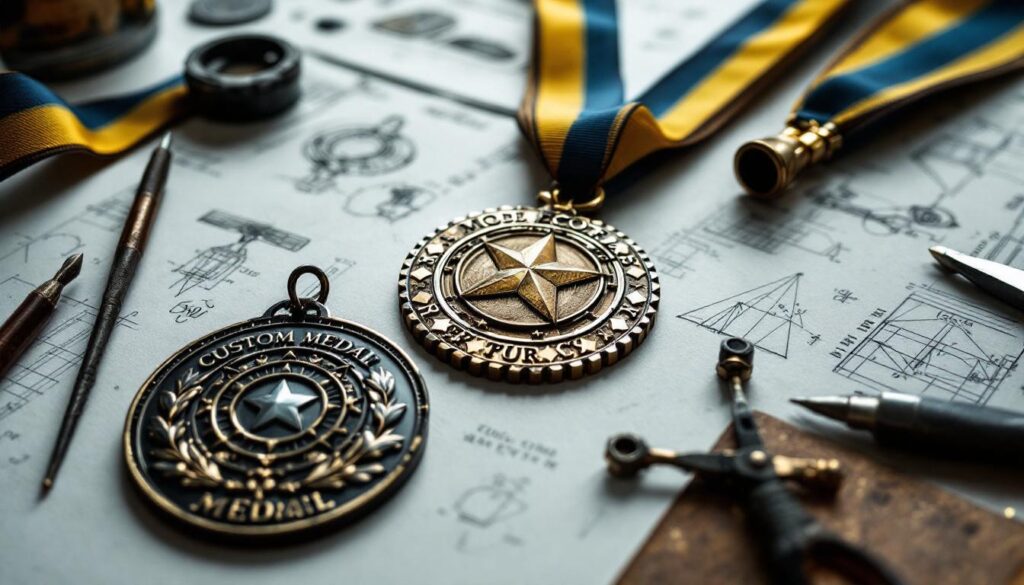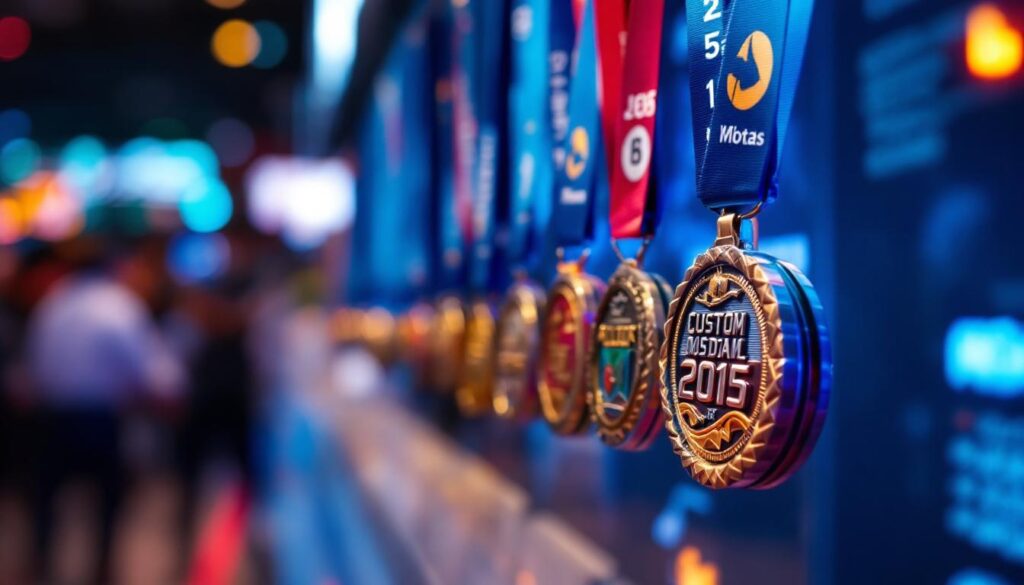Creating custom medals for sports or corporate events is an exciting venture that involves careful planning and consideration. Medals not only serve as awards but also as a symbol of achievement, recognition, and motivation for participants. Whether you are organising a local sports tournament or a corporate recognition event, there are several factors to consider to ensure that your custom medals are not only visually appealing but also meaningful and memorable. This guide will explore the essential aspects to keep in mind when designing and producing custom medals.
Understanding the Purpose of the Medals
Before diving into the design and production process, it is crucial to understand the purpose of the medals. Are they meant to celebrate athletic achievements, recognise corporate milestones, or commemorate a special event? The purpose will significantly influence the design, materials, and overall aesthetic of the medals.
For sports events, medals and sports keychains often represent competition and achievement. They can motivate participants to strive for excellence and foster a sense of camaraderie among competitors. In contrast, corporate medals may serve to recognise employee achievements, commemorate anniversaries, or celebrate team successes. Understanding the purpose will guide your decisions throughout the process.
Defining the Target Audience
Identifying the target audience is another critical aspect of creating custom medals. The design and messaging should resonate with the recipients, whether they are athletes, corporate employees, or event attendees. Consider the age, interests, and values of the audience when designing the medals.
For instance, medals for youth sports events may feature vibrant colours and playful designs, while corporate medals may adopt a more sophisticated and professional appearance. Tailoring the design to the audience ensures that the medals are not only appreciated but also cherished as a symbol of achievement.
Design Considerations
The design of the medals is perhaps the most exciting yet challenging aspect of the creation process. A well-thought-out design can enhance the overall appeal and significance of the medals. Here are several key design considerations:
Shape and Size
The shape and size of the medals can vary widely, from traditional round designs to unique custom shapes that reflect the event’s theme. Consider the practicality of the size; medals should be large enough to display intricate designs but not so large that they become cumbersome for recipients to wear or display.
Additionally, the shape can convey a message about the event. For example, a medal shaped like a trophy may be suitable for a sports competition, while a corporate event might benefit from a more abstract or logo-inspired shape.
Material Selection
The choice of materials is crucial in determining the quality and durability of the medals. Common materials include metal, plastic, and wood, each offering distinct advantages. Metal medals, often made of brass, zinc, or stainless steel, are durable and can be finished with various plating options like gold, silver, or bronze.
Plastic medals can be cost-effective and lightweight, making them suitable for larger events where budget constraints are a concern. Wooden medals, on the other hand, provide a unique and eco-friendly option that can be personalised with engravings or prints.
Incorporating Branding and Messaging
For corporate events, incorporating branding elements such as logos, taglines, or colours is essential. This not only reinforces the brand identity but also adds a professional touch to the medals. Consider the placement of these elements carefully to ensure they are prominent yet harmonious with the overall design.
For sports events, consider including the event name, date, and any relevant imagery or symbols that represent the sport or achievement. This personalisation adds sentimental value and makes the medals more memorable for recipients.
Production Process
Once the design is finalised, the production process begins. Understanding the various steps involved can help ensure a smooth experience and high-quality results. Here are the key stages of the production process:
Choosing a Manufacturer
Selecting the right manufacturer is crucial for achieving the desired quality and design. Research potential manufacturers, looking for those with experience in producing custom medals. Read reviews and request samples to assess their craftsmanship and attention to detail.
It is also essential to communicate your design ideas clearly. Provide the manufacturer with detailed specifications, including dimensions, materials, and any specific requirements. A reputable manufacturer will work closely with you to ensure your vision is realised.
Prototyping
Before mass production, it is advisable to create a prototype of the medal. This allows you to evaluate the design, materials, and overall appearance before committing to a larger order. Prototyping can help identify any potential issues and provide an opportunity for adjustments.
Once the prototype is approved, you can proceed with the production process, confident that the final product will meet your expectations.
Quality Control
Quality control is a vital step in the production process. Ensure that the manufacturer has a robust quality assurance system in place to check for defects or inconsistencies. This includes inspecting the medals for any flaws in design, material, or finish.
Conducting a final inspection of the completed medals before distribution is also advisable. This ensures that every medal meets the established standards and is ready for presentation to recipients.
See Also : Custom Made Patches: Stand Out with Personalised Branding Solutions
Distribution and Presentation
The way medals are presented can significantly enhance their impact. Consider how you will distribute the medals during the event. A formal presentation ceremony can add a sense of importance and recognition to the occasion.
For sports events, consider creating a podium for medal presentations, where winners can be celebrated in front of their peers. For corporate events, a dedicated awards ceremony can provide an opportunity for leaders to express appreciation and recognition for employees’ hard work.
Packaging Options
Investing in quality packaging can further elevate the presentation of the medals. Consider using custom boxes, pouches, or display cases that complement the design of the medals. High-quality packaging not only protects the medals but also enhances the overall experience for recipients.
Personalised packaging, such as including the recipient’s name or a congratulatory message, can add a special touch that makes the presentation even more memorable.

Post-Event Considerations
After the event, consider how the medals will be perceived and valued by the recipients. Encourage feedback from participants to understand their thoughts on the medals and the overall experience. This feedback can be invaluable for future events and medal designs.
Additionally, consider ways to celebrate the achievements represented by the medals beyond the event itself. Sharing photos and stories on social media or through newsletters can help maintain the excitement and recognition associated with the medals.
Conclusion
Creating custom medals for sports or corporate events involves a multifaceted approach that encompasses design, production, and presentation. By understanding the purpose, defining the target audience, and considering design elements, you can create medals that are not only visually appealing but also meaningful and memorable. With careful planning and attention to detail, your custom medals will serve as lasting symbols of achievement and recognition for years to come.

